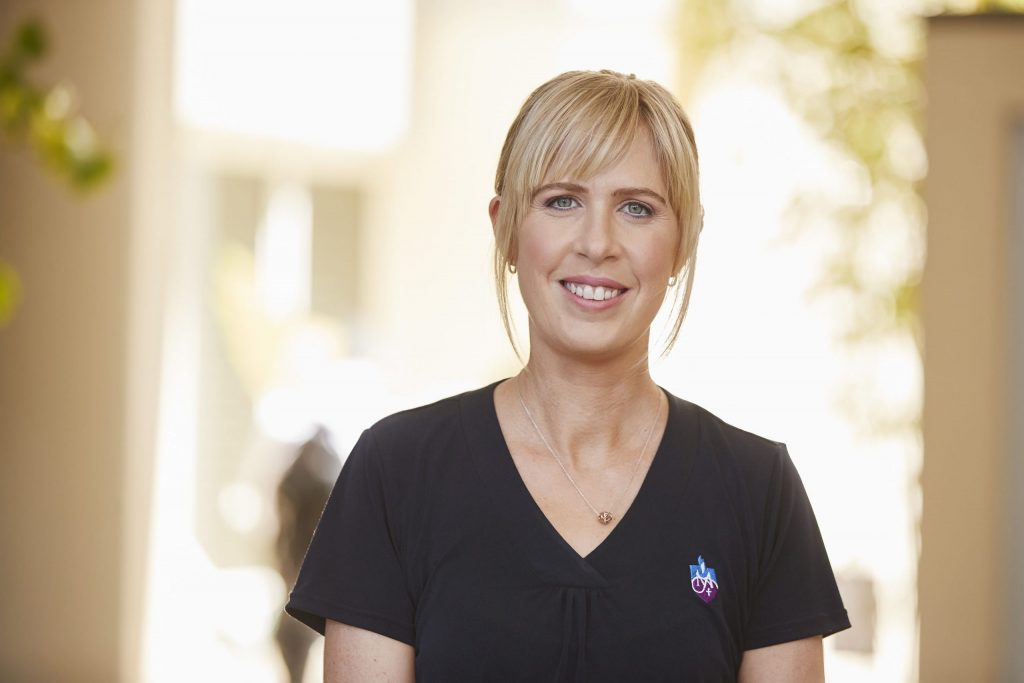Sarah Tooke, Clinical Midwife, The Mater Hospital
New parents have to adapt to several physical and emotional changes. Sometimes, we become so attuned with our babies and this new lifestyle that we forget about ourselves and neglect our mental health, resulting in perinatal anxiety and depression.
Not only does this directly affect our mood and outlook, it can also impact our relationships with others and especially with our baby.
Below are signs and symptoms of perinatal anxiety and depression to look out for in a partner or loved one, and how to help them get the support they need.
About perinatal anxiety and depression
Perinatal anxiety and depression is a serious health condition which can affect any new or expecting parent. Up to one in five new and expecting mums and one in ten new or expecting fathers will experience it – affecting over 100,000 expectant and new parents in Australia reach year.
‘Perinatal’ refers to the period from the conception of a child through to the first year after birth. This is often a time of significant change for all new parents, who may need some support to improve their emotional wellbeing and help them adjust to these changes.
Checklist for new parents: signs and symptoms of perinatal anxiety and depression
If you are a new parent and have noticed that either you or your partner are in a low mood, are anxious, or simply haven’t been functioning normally, be sure to take note of the checklist below outlining the symptoms of perinatal anxiety and depression. You should consider seeking professional help if you have experienced any of these feelings for two weeks or more.
Signs and symptoms of perinatal anxiety:
- Constantly feeling sad, pessimistic and not enjoying life
- Inability to concentrate, make decisions or get things done
- Inability to rest or sleep even when the baby is sleeping
- Avoiding situations that may remind you of your birth experience
- Thoughts of harm to yourself, baby or partner
- Worrying constantly and unnecessarily
- Feelings of guilt, shame, or repetitive thoughts
- Feeling trapped or in a dark hole or tunnel with no escape
- Feelings of grief, loss, anger, or fearfulness
- Feeling lethargic or hyperactive
- Finding it difficult to focus, concentrate or remember
- Increased alcohol or drug use
These symptoms should not be confused with the “baby blues”, a brief period of mood swings, tearfulness and anxiety that is very common among new mothers in the first week after giving birth. “Baby blues” symptoms tend to appear 3–5 days after giving birth and usually resolve in a week or two.
Again, if any of the symptoms from the checklist above have persisted for more than two weeks, please seek support. Rest assured that many mothers and fathers have come through this experience to find joy and fulfilment as a parent. No parent should ever go through this alone.
How to get help
If you’re concerned that your partner or a loved one is suffering from perinatal anxiety and depression:
- Ask if they are able or willing to share their thoughts and feelings on what they are experiencing
- Reassure them that they are not alone, and that there are support networks that can help
- Suggest that they speak to their GP, family health nurse, or other trusted health professionals
- Call Gidget Foundation Australia on 1300 851 758 or 02 9460 1550. Gidget Foundation Australia provides support for perinatal anxiety and depression through Gidget House. The service includes free professional and psychological services which are available for pregnant women and new parents
- Call Perinatal Anxiety & Depression Australia’s (PANDA) free National Perinatal Anxiety & Depression Helpline on 1300 726 306 anytime from 9am – 7:30pm Monday to Friday (AEST/AEDT), and a professional health support staff member will assist you.
- Mater Maternity also offers free professional, psychological support services, with an in-house Gidget House extension. For more information, please contact the Mater Maternity Department on (02) 9900 7690, or visit matermaternity.com.au.
If you are unsure if what you’re feeling is ‘normal’:
- PANDA offers a free and anonymous online tool that asks questions about your thoughts and feelings, to give an indication if you need additional support.

Sarah Tooke
Sarah Tooke is a registered nurse, midwife and childbirth educator at The Mater Hospital, one of Sydney’s leading maternity hospitals.
https://www.matermaternity.com.au/
You may also like to read:









